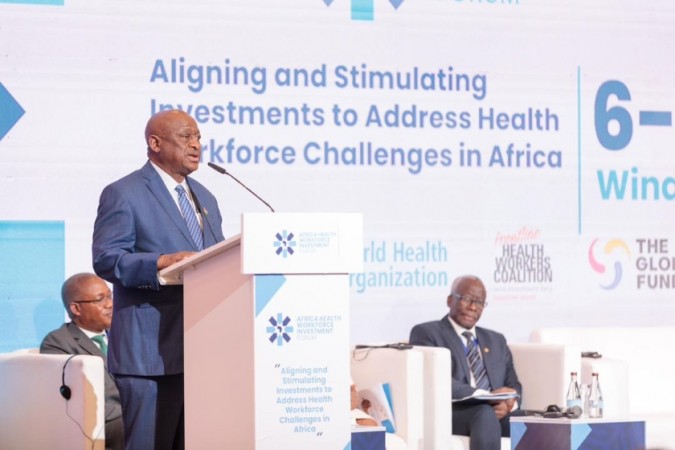
The World Health Organization (WHO) has unveiled the Africa Health Workforce Investment Charter, marking a milestone in the region's efforts to bolster its healthcare workforce. Introduced during the Health Workforce Investment Forum in Namibia from May 6th to 8th, 2024, this groundbreaking charter aims to mobilize substantial funding to strengthen Africa's health workforce, particularly in rural and primary healthcare settings.
The charter, a collaborative initiative between national governments, the private health sector, civil society, external financing institutions, and development partners, seeks to tackle critical funding shortages and the scarcity of healthcare professionals in Africa. With an ambitious goal of halving the region's staggering 6.1-million health workforce deficit by 2030, the charter aims to mobilize both domestic and partner funding to fortify, expand, and retain Africa's health workforce.
Honourable Dr. Saara Kuugongelwa-Amadhila, Prime Minister of Namibia, highlighted the urgent need to adequately resource and capacitate healthcare professionals to deliver effective healthcare services. Emphasizing the indispensable role of health workers, she stressed the necessity of robust investment to strengthen healthcare delivery systems across the continent.
In addition to addressing workforce shortages, the charter aims to tackle various healthcare challenges, including rising unemployment, excessive out-migration, and substandard training quality. Insufficient investment in healthcare and a lack of prioritization for the health workforce have left health systems vulnerable, exacerbating health disparities and hindering progress towards universal health coverage.
Dr. Matshidiso Moeti, WHO Regional Director for Africa, emphasized the transformative potential of investing in the health workforce, asserting that such investments yield dividends in education, employment, and gender equality. Notably, investing in healthcare employment opportunities for women and youth can foster inclusive economic growth and empower marginalized demographics.
Furthermore, health workforce investment promises numerous benefits for health and economies alike, including job creation, increased life expectancy, and progress towards Sustainable Development Goals and universal health coverage. Studies indicate that for every US$1 invested in health and sustaining health worker jobs, the potential return is as high as US$9, demonstrating the significant economic impact of healthcare investments.
As the Africa Health Workforce Investment Charter takes center stage, ongoing efforts will focus on engaging multisectoral stakeholders and fostering partnerships to translate its principles into actionable initiatives.
Article by Jed Mwangi
Photo/Google

Comment